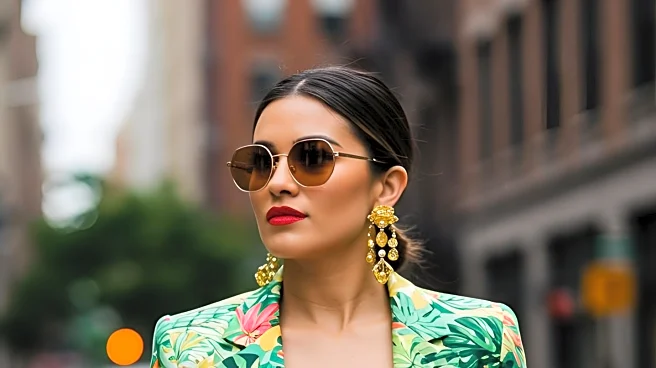What's Happening?
Becca Bloom, an American entrepreneur and influencer with 4.7 million TikTok followers, is facing criticism for her recent content showcasing her wealth. Bloom posted an unboxing video on September 13, which has garnered 14.8 million views, featuring luxury items from Hermès. Critics have labeled her content as 'unethical' and 'tone deaf,' with some viewers expressing disdain for her extravagant spending. Comments on her video reflect a sentiment that her display of wealth is out of touch with the economic realities faced by many. The backlash has intensified with other creators on TikTok, such as @1ilyp00h, criticizing Bloom for her uninspired use of wealth and lack of meaningful contributions to society.
Why It's Important?
The controversy surrounding Becca Bloom highlights the growing discontent with influencers who flaunt their wealth amidst significant economic disparities. This backlash underscores the potential negative impact of 'RichTok,' a trend where creators showcase their fortunes, on impressionable viewers. Such content can distort perceptions of normalcy and success, particularly among younger audiences. The criticism also reflects broader societal concerns about wealth inequality and the ethical responsibilities of influencers. As the influencer economy continues to grow, with many aspiring to leave traditional jobs for social media careers, the debate over the role and impact of influencers in society becomes increasingly relevant.
What's Next?
The ongoing criticism of Becca Bloom may prompt discussions within the influencer community about ethical content creation and the responsibilities of those with significant social media influence. As more creators join the conversation, there could be a push for influencers to use their platforms for positive social impact rather than mere displays of wealth. Brands and advertisers might also reconsider their partnerships with influencers who face public backlash, potentially affecting Bloom's future collaborations. The situation may lead to a broader examination of the influencer economy and its effects on societal values and career aspirations.
Beyond the Headlines
The backlash against Becca Bloom's content raises questions about the cultural implications of influencer-driven consumerism. It highlights the ethical considerations of wealth display in a digital age where social media can amplify disparities. The situation may encourage a shift towards more responsible and socially conscious content creation, influencing how influencers engage with their audiences. Additionally, it could spark discussions about the long-term sustainability of the influencer economy and its impact on traditional career paths.










